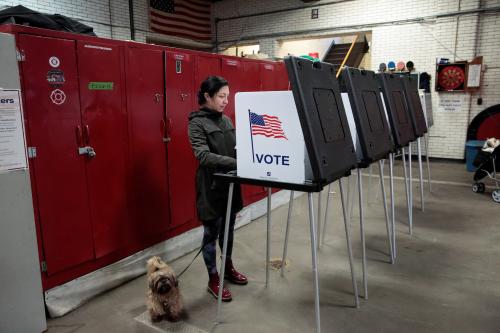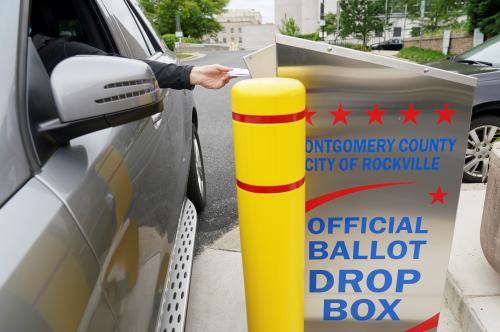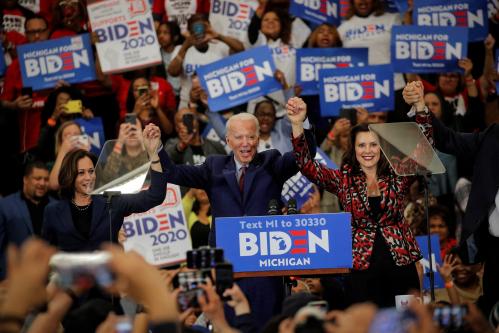On June 2, Pennsylvania held a historic primary election under unprecedented conditions. In the months and year preceding the primary, Pennsylvania had more changes to how it votes and conducts elections than any time in recent history.
First, all Pennsylvanians voted on new, more accessible, auditable and secure voting systems which provide a voter-verifiable paper ballot. The final 22 counties debuted their new voting systems in the 2020 primary, completing a two-year initiative to bring state-of-the-art voting systems to all 67 counties.
Second, Pennsylvanians now had access to more voting options than we’ve seen in over 80 years, thanks to bipartisan support of Act 77, signed into law late last year.
Thankfully, one of those options was that all Pennsylvanians could now vote by mail-in ballot without having to provide an excuse.
The timing could not have been better, due to another change in conditions: COVID-19. Due to the pandemic and stay-at-home orders to stop the spread of the virus, Pennsylvanians embraced mail-in voting in impressive numbers. In a matter of months, nearly 1.5 million voters cast their vote by mail-in or absentee ballot, 17 times the number that voted absentee in the 2016 primary, when approximately 84,000 absentee ballots were cast. The primary date was rescheduled from April to June, some polling places were changed or consolidated, and many new poll workers had to be recruited and trained because of COVID-19.
Circumstances changed even further just days before our primary election, when we experienced civil unrest occurring nationally in response to the tragic death of George Floyd, leading to curfews and travel restrictions. Governor Wolf granted extensions for receipt of mail-in ballots in six counties because of the regional civil unrest.
No election ever runs perfectly. Humans make errors. Technology can break down at the most inopportune times. The weather and other forces outside of our control may introduce unexpected obstacles.
Yet, despite the multiple changes and challenges for this primary, Pennsylvanians voted safely and peacefully, embraced their new mail-in voting option, and the new voting systems performed well. Reports of significant incidents were fewer than reported in many comparable prior elections, and our overall turnout was far higher than in 2012, the last time we had a presidential primary no longer contested on both sides of the aisle.
We also learned some valuable lessons from the primary that we can use to ensure an even smoother voting experience in the general election in November.
Foremost among our goals will be making it easier for counties to distribute and count mail-in ballots. The sheer volume of these ballots, coupled with the extended deadlines to return them in six counties, delayed primary results in some places. Our first priority is and has always been accurately counting the ballots, and we know every voter shares this commitment. However, we also want to help the counties canvass these ballots as quickly and efficiently as possible.
The single most important change would be a legislative change: We hope to work with the General Assembly to allow counties to begin pre-canvassing ballots in the weeks before Election Day. We hope the legislature shares the urgency of this change advocated both by the counties and the Department, and will pass this amendment before November.
Additionally, the Department will be developing a timeline and best practices for the counties, to map out the most effective processes between now and November, including recommendations on additional equipment, staffing, and schedules necessary to effectively process the high volume of mail-in ballots expected in November.
We will look to the counties that had the greatest success in both mailing out and canvassing of ballots, to assist the counties that had greater challenges, and ensure that all counties are as equipped as possible with highest speed, highest capacity ballot-handling and scanning equipment available.
We recently allocated $13 million in subgrants to the counties from the 2020 federal appropriations, and are encouraging counties to use these and other state and federal funds to ensure we can provide voters with the most secure, efficient, and accurate democratic process possible. And we continue to advocate that the federal government provide additional appropriations, including sustained, annual funding of our elections, so states and counties may plan more effectively.
Pennsylvanians are proud of our heritage as the birthplace of both the Declaration of Independence and the U.S. Constitution. This year, we reaffirmed the durability of our democracy when we cast our votes amid historic changes, a worldwide pandemic, and nationwide social unrest.
We could not do this without the tremendous efforts of the true heroes of our democracy: our dedicated election officials and poll workers. It is thanks to their outstanding work, as well as the resiliency of voters, that we were able to provide a safe and peaceful primary election for all. We urge all voters to consider serving as poll workers, participating in this great wheel of democracy. Together, we look forward to a historic, successful election on November 3.






Commentary
Historic primary paves way for successful general election in Pennsylvania
June 22, 2020